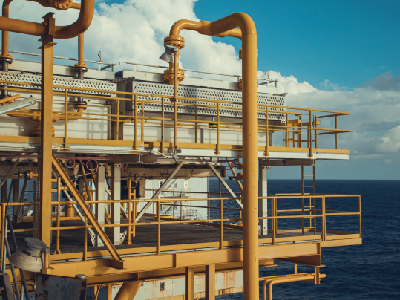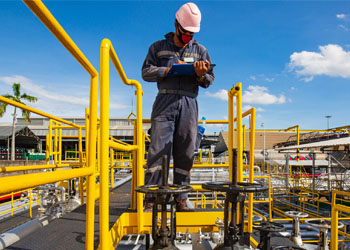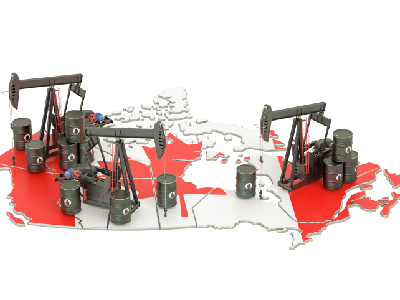Monitoring and Analyzing Operational Performance and Quality Improvement in Oil Refineries
Course Overview
Oil refineries play a crucial role in transforming crude oil into high-value petroleum products, requiring careful monitoring and continuous analysis of operational performance to achieve the best possible quality. Quality improvement and ensuring operational continuity are key objectives in refinery management. This program aims to enhance participants' abilities in performance monitoring, data analysis, and applying quality improvement strategies within refineries.
Course Objectives
- Understanding the fundamentals of performance monitoring and analysis in oil refineries: Familiarizing with the methods and tools used for monitoring and analyzing performance in refineries.
- Analyzing operational data to improve processes: Learning how to collect and analyze operational data to enhance efficiency and quality.
- Developing strategies for quality improvement in refining processes: Acquiring the skills to apply continuous quality improvement strategies.
- Using modern technology in process monitoring: Learning how to utilize modern technology in monitoring and analysis to ensure process efficiency.
- Analyzing operational and quality risks and implementing preventive solutions: Learning how to identify risks and develop preventive plans to improve quality and operational continuity.
Target Audience
- Operations managers and supervisors in oil refineries.
- Quality engineers and process improvement specialists in the refining sector.
- Employees in operational data analysis and performance monitoring.
- Planning and quality officers in oil facilities.
- Specialists in developing operational efficiency and ensuring the quality of petroleum products.
Course Modules
Principles of performance monitoring in oil refineries
- Definition of performance monitoring and its importance in improving operational efficiency.
- Key Performance Indicators (KPIs) in Oil Refineries.
- The role of monitoring in reducing unplanned downtime and increasing productivity.
- Techniques for improving the effectiveness of systems and equipment through continuous monitoring.
- Use monitoring data to make effective operational decisions.
Analyzing operational data to improve performance
- How to collect operational data from systems and equipment in refineries.
- Use statistical analysis to understand patterns and identify trends.
- Transforming data into analyzable information to improve operations.
- Cost-benefit analysis techniques to improve operational efficiency.
- Develop plans based on analysis results to improve performance.
Quality improvement strategies in refining processes
- Basic principles of quality in refining operations.
- How to apply quality standards at all stages of operations.
- Continuous improvement strategies such as (Lean, Six Sigma) in refineries.
- Developing Quality Assurance and Quality Control procedures.
- Case studies of applying quality improvement strategies in refineries.
Modern technology in monitoring and analyzing operations
- The role of Internet of Things (IoT) systems in real-time process monitoring.
- Using artificial intelligence (AI) to analyze operational data and predict failures.
- Drone applications in monitoring refinery infrastructure.
- Use of SCADA systems for automated control and monitoring.
- Examples of using technology to improve quality and process efficiency.
Risk Management and Quality Improvement
- Analysis of risks associated with refining operations and how to deal with them.
- Apply Root Cause Analysis to identify problems.
- How to develop prevention plans to reduce risks and improve quality.
- Develop rapid response plans for unexpected breakdowns and problems.
- Case studies of risk management and quality improvement in oil refineries.
Instructor
Name: Ahmed Al-Taweel
Specialization: Administrative development
Certificates: PhD
Core Programs Trained:
Bio:
- Languages: Arabic
- Program Levels: Technical level
- Venue: مقر الشركة
- Hours: 20
- Location:
Price: $1300.00



.jpg)







